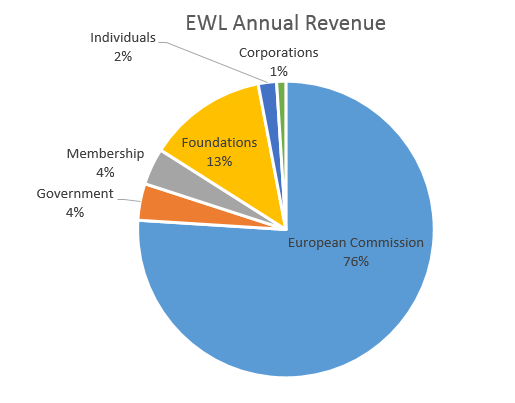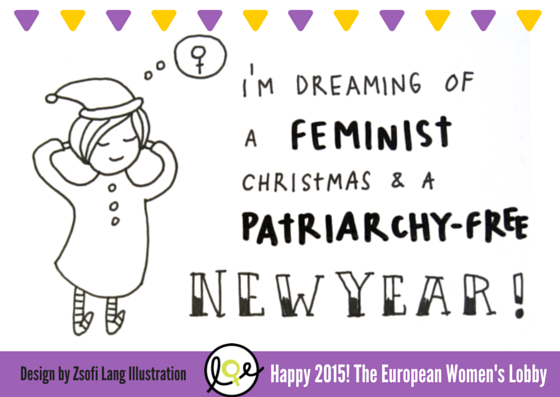[IPS, Warsaw, 04 March 2012] Despite pushes from international bodies such as the United Nations (UN) or the European Union (EU) to promote gender equality in Central and Eastern Europe, access to funding for such initiatives remains largely conditional upon national governments’ willingness to embrace this agenda.
Immediately after the fall of communism in 1989, Central and Eastern European (CEE) NGOs working on gender equality got most of their funding from U.S. or Western European private foundations or governmental agencies; following these countries’ entry to the EU, non-EU donors withdrew considering the region well covered by EU funds.
CEE NGOs, however, noted that following EU accession, it has become ironically more difficult to access funding, primarily because EU funds must generally be co-financed from national budgets and also get distributed according to priorities set at the national level. As a consequence, NGOs find themselves limited by their governments’ agendas that are not always progressive.
“Before EU accession it was paradoxically easier to get money for more radical actions and publications,” says Alina Synakiewicz from Polish NGO Feminoteka. “Now, even though money is available, it is given out via governmental intermediation, meaning that the government channels it the way it wants.”
In the best case, NGOs “get creative” and manage to fit their priorities into the governmental agenda; in the worst, they are simply denied funding for themes deemed unacceptable.
The most striking example of such marginalisation of a core gender equality theme as a result of a conservative national agenda concerns reproductive rights in Poland. In 1993, abortion was made illegal in this country and, to date, access to contraceptives and sexual education is limited, and doctors are free to invoke a “conscience clause” to refuse writing prescriptions for birth control. Gender equality activists argue that such limitation of reproductive rights in the country is primarily caused by the strong hold that the Polish Catholic Church has on both the state and society as a whole.
Last year, activists attempted to introduce a reproductive rights bill in the parliament, having as main points the legalisation of abortion, making contraceptives affordable and more accessible, introducing fact-based sexual education in schools, and state support for in-vitro fertilisation.
Their effort to gather the 100,000 signatures needed to bring the civic law proposal into the legislative failed because of a media blackout on the initiative alongside a lack of funds and help for the activists. Even some NGOs working on women’s issues steered away from supporting this effort as they did not trust the initiative can succeed.
“What has unfortunately changed in the last 20 years in Poland is that the whole public space is dominated by the terminology propagated by the Church,” says El?bieta Korolczuk, one of the activists promoting the initiative. “Not only the general public but quite a big part of our activist circles do not believe it is possible to change the law when it comes to reproductive rights in Poland in the foreseeable future.” Korolczuk, however, says the fight will continue, even in such an unfavorable climate.
And, across CEE, gender equality activists are winning battles every day regardless of resistance or indifference from national authorities.
Some of the most difficult themes to address across the region over the past two decades have been violence against women and domestic violence. Funding from national sources remains scarce for groups working on violence against women which results not only in limited NGO capacity – highly problematic considering that it is NGOs that do most of the work on this issue — but also in an insufficient number of shelters for victims of violence.
Legislation regarding domestic violence has also advanced with fits and starts. Most CEE countries have passed such laws, yet often the texts lacked provisions for imposing restraining orders on the aggressors; arguably, this reluctance has to do with a “sanctification” of private property across the region after 1989 and hence an unwillingness to take men (usually the aggressors) out of their homes (of which often they are the owners).
But this week (Feb. 28), following over two years of intense campaigning by NGOs, the Romanian parliament finally introduced an amendment in the national legislation regulating the use of restraining orders against the perpetrators of domestic violence.
Two years back, Cristina Horia from Sensiblu Foundation, one of the main groups working on domestic violence in Romania and organiser of a strong public campaign on the theme in 2009, was telling IPS that “the involvement of state institutions with the issue of domestic violence is limited, being at most supporters and partners, but not initiating campaigns.”
Over the past two years, Horia says, national and local authorities have improved their attitudes, yet “systematic gaps” continue to prevent a proper engagement with domestic violence.
Among these gaps, Horia lists “the under-financing of the social assistance system, the insufficient number of shelters for battered women, the lack of a national strategy to address domestic violence, the authorities’ failing to assume the role of protecting victims and to implement measures to punish aggressors, insufficient training of the police and public services staff to deal competently with victims and aggressors.”
There is a sense that NGOs active in CEE are operating in quite a different reality than that described by their national authorities in reports to international bodies, full of good intentions and commitments to gender equality.
A possible test of this statement could be to look at how one of the most advanced gender mainstreaming tools proposed by the UN, gender budgeting, fares in the region. Gender budgeting means analysing and transforming national and local budgets in such a way that they allow for the advancement of women or at least that obstacles to gender equality are eliminated. It does not mean giving more money for women, but rather, using existing resources more cleverly.
According to economist Elizabeth Villagomez, who has worked for years with various UN agencies on training and assessing possibilities of introducing this tool in CEE, “gender budgeting is not strong in these countries because the idea and principles of gender equality are still weak there; in former communist countries, the idea of equality as a value in general, including when it comes to gender, is not yet very much welcomed or still misunderstood because of the recent socialist past.”
Gender budgeting has been attempted in several places across the region, from municipalities in Poland (Gdansk) and Albania (Elbasan), to the national level in the Czech Republic, but its implementation remains patchy and has not brought the results seen in the West. Villagomez adds another reason for this lack of success: “using gender budgeting depends on the real capacities of governments to use results-based budget management and also on how the political priorities reflected in the budgets are set.” (END)


